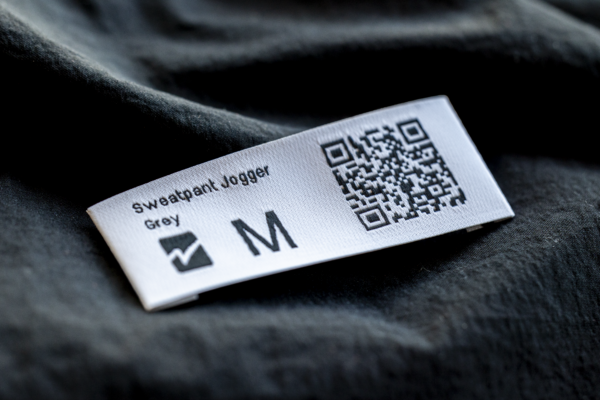As of January 2024, consumer trust had fallen to its lowest level since 2016. According to a 12-year survey by Qualtrics XM Institute, it had declined across most industries in the US, including retail.
Although there are tons of factors at play in this loss of trust, greenwashing is up there on the list of culprits. Thank goodness there’s something on the horizon that’ll put a swift end to greenwashing once and for all.
Our knight in shining armor is the Digital Product Passport. You may have met before — this cheeky little piece of legislation is part of the Ecodesign for Sustainable Product Regulation (ESPR for short), due to come into force by 2027. Our team of experts is here to expose greenwashing, the harm it does, and the role DDP legislation will play in restoring consumer confidence.
Read: Digital product passports – 6 things every fashion retailer needs to know
How greenwashing has eroded customer confidence
Green credentials are among the top things customers value about products in today's market. According to PwC's 2024 Voice of the Consumer Survey, consumers are willing to fork out an average 'sustainability premium’ of 9.7 percent. This demand could be behind the fashion industry's stray into greenwashing territory.
‘Greenwashing’ is the act of making a product or brand look more eco-friendly, sustainable, or ‘green’ than it really is. There are several tactics at play, from rebranding packaging into ‘fresh’ or ‘natural’ colors to cherry-picking product attributes in marketing. It’s a very slippery slope.
For example, in 2021, the European Commission and National Consumer Authority released the results of a website sweep analyzing green claims by garment, cosmetics, and household brands online. In 42 percent of cases, they found 'green' claims to be deceptive, false, or exaggerated. In more than half of the cases, brands didn't supply enough information for consumers to judge the claims' accuracy. And that's just not cricket, folks.
Customers want to trust what they're buying, but retailers will need to rebuild some of the trust that's been lost through greenwashing. And DPP is just the thing!
Digital Product Passports: the ultimate trust booster
You might only know Digital Product Passport (DPP) legislation as a looming deadline you're gearing up to tackle over the next few years. Sure, it's challenging. But it's also massively beneficial, with greenwash eradication sitting pretty as one of the main perks.
Under DPP legislation, 'producers' (AKA the companies or brands responsible for making a product and putting it on the market) are responsible for collecting, maintaining, and updating a handy bank of information about each and every product they create. This information will be stored in a secure, central location. It will be standardized across all EU member states, so no matter where you buy from, the info is always the same and always up to date.
The product info criteria for DPPs haven’t been released yet, but current official comms say it may include info around technical performance, materials (and their origins), repair, recycling, and the environmental impact of the product’s lifecycle. This info is one half of the DPP.
DPPs also include a scannable 'DPP carrier' on the garment, which is easily accessible to customers on the shop floor (so they can make informed buying decisions). Plot twist: The DPP carrier also needs to stay with the product throughout its lifetime, so the information is always available, whether the garment is washed, worn, or resold.
It's easy to see how DPPs are the ultimate tool for trust restoration. By law, the information they hold must be up-to-date, accurate, and accessible. They make it impossible to hide behind a false green marketing veneer because it'll all come tumbling down with a single smartphone scan. DPPs also make it easier for external auditors to check in on brands and their progress.

Getting your DPP rollout plan together
Are you ready to help the EU crackdown on greenwashing and feel the warm rush of that sweet, sweet customer trust returning to you in swathes? Great! You'll need to find a secure, reliable, centrally stored SaaS provider for your DPP info and a way to attach the carrier to your garments and accessories. Luckily, we've got you covered on both.
Not only is Checkpoint already in talks with SaaS providers for the information storage aspect of the DPP rollout, but we've also got a few different solutions for the carrier. You could choose serialized woven QR codes, heat-transfer codes, or our Gemini Tags, which have been specially designed for DPPs.
Got questions? That’s understandable. Contact our team and ask away! We’re happy to troubleshoot DPP issues, scheme up solutions, and help you plan and roll out the digital and physical aspects of your project. Read more in our blog for more EU compliance news or browse our apparel label portfolio.
